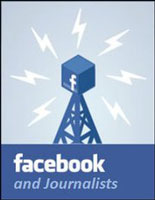Top stories






More news




















Jane Duncan, media professor at Rhodes University in the Eastern Cape, told Bizcommunity.com last night: "It's a great idea. I'm sure it will be an invaluable resource for journalists, enabling the sharing of resources to improve the quality of journalism and enabling them to strengthen one another's work by networking with one another."
As social media keeps rising and continues playing a critical role in supporting traditional media, thus rightfully claiming its share of success in the media sphere, some observers wonder if tools such as Facebook and Twitter might one day overthrow the traditional journalism regime.
Duncan said: "Well, needless to say, Facebook cannot substitute good old fashioned journalism. Sources sourced through Facebook will still need to be verified and attempts made to ensure multiple sources for stories, as far as possible.
"The reader interaction facility should be particularly useful, as it should make journalism more responsive to the public it claims to serve, thereby increasing media accountability."
However, research shows that in countries where traditional media is increasingly persecuted by oppressive governments, social media is said to have taken over, acting as a reliable platform for breaking news.
Duncan, who recently returned from Egypt where she attended a media conference, said: "In Egypt, I discovered that, owing to the controls placed on much of the traditional media, blogs and social media have become major sources of news and information to the point where traditional media now rely on blogs and social media for breaking news."
She added: "So traditional media does not lead the news anymore, they follow the news. Facebook has played a key role in disseminating information about the revolutions in North Africa, and perhaps Facebook has launched this innovation out of recognition of this fact."
Facebook, the world's third-most populous 'country' whose 'capital city' is located in Palo Alto, California, said the 'Journalists on Facebook' page received 2300 'likes' within an hour of going up. [Now 17 992 at 11.47am GMT+2 - managing ed]
AFP reported that those who befriended the page include ABC Sunday talk show host Christiane Amanpour (formerly of CNN), ABC news anchor Diane Sawyer and CBS TV news anchor Katie Couric.
Asked whether she foresees any challenges ahead, especially in countries with history of internet censorship and lack of freedom of expression, Duncan replied: "Facebook, Twitter and other social sites like Flickr are becoming increasingly important as methods of disseminating information in repressive situations, as they allow information to be disseminated that would otherwise not find its way into the public domain.
"This is particularly the case in North African countries like Egypt which has, relatively speaking to the rest of the continent, a high internet penetration rate that continues to increase owing to mobile access. So it is to be expected that democracy movements in other repressive countries will make greater use of social networks.
"Of course, they will face similar problems to activists in Egypt, where the Internet was censored and bloggers jailed. That is why digital media freedom is such an important demand for democratic movements. This should include ensuring that governments do not maintain control of internet gateways in these countries."
For more:
Last updated at 11.47 on 7 April 2011.
